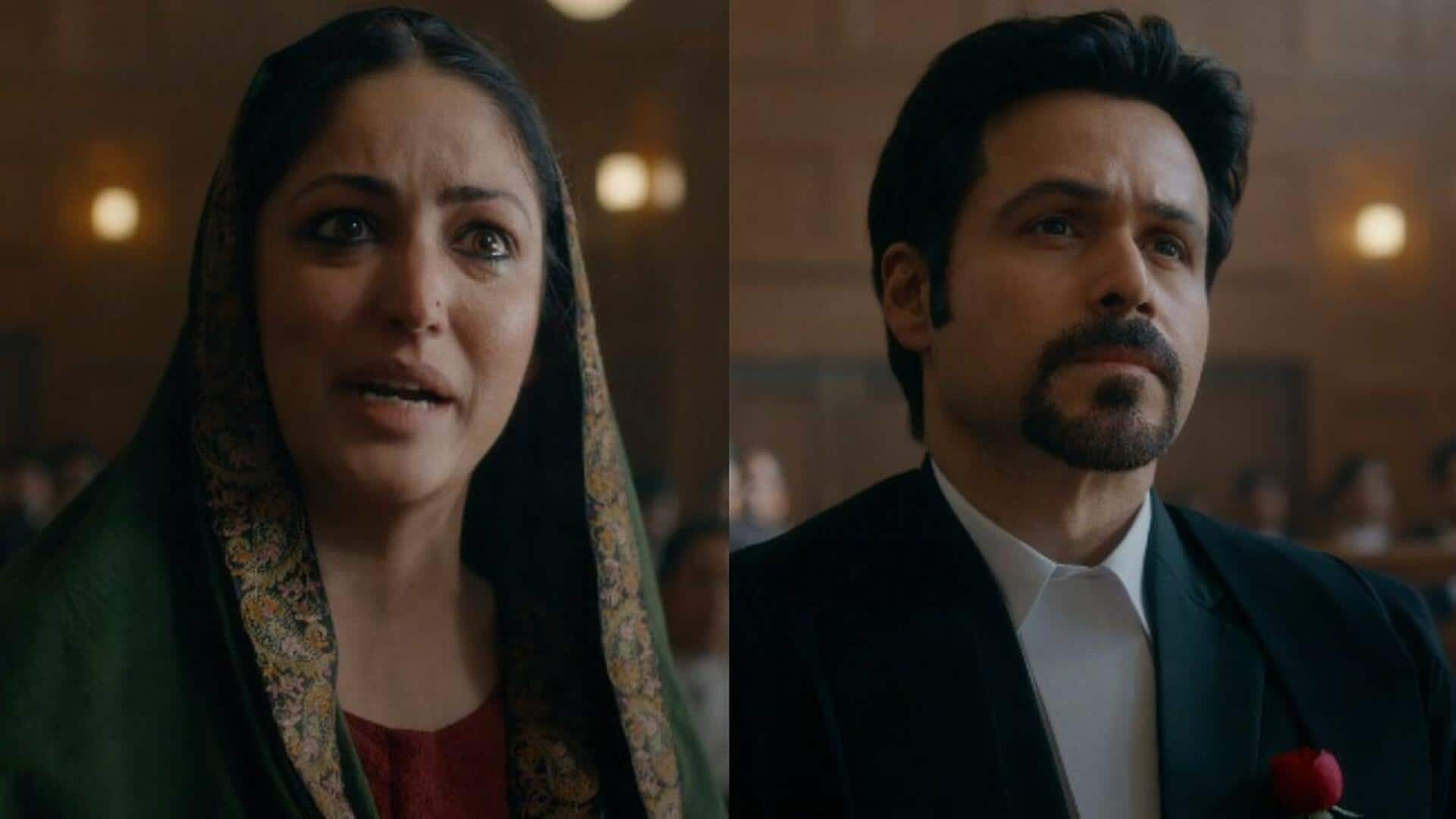
What was the Shah Bano case that inspired Yami-Emraan's 'Haq'?
What's the story
The upcoming film Haq, starring Yami Gautam Dhar and Emraan Hashmi, draws inspiration from the landmark 1985 Shah Bano judgment. In this case, a divorced Muslim woman named Shah Bano sought maintenance from her husband. The Supreme Court ruled in her favor, affirming lower court decisions to grant her alimony. However, the story didn't end there. Here's a closer look at the case and its impact.
Case details
What is the Shah Bano case?
The case dates back to April 1978, when Bano, a 62-year-old Muslim woman, filed a petition in Indore seeking maintenance from her ex-husband, Mohammed Ahmad Khan. The couple had five children, but Khan later remarried and eventually threw Bano and their children out of the house. When Khan stopped providing her with the promised monthly maintenance, Bano approached the court under Section 125 of the Code of Criminal Procedure, 1973. He divorced her using triple talaq, too.
Legal proceedings
What were the arguments in the case?
Khan contested Bano's claim, arguing that under Muslim Personal Law in India, he was only required to provide maintenance for the iddat period after divorce. Iddat is a waiting period a woman must observe after her husband's death or divorce before remarrying. In response, Bano argued that Section 125 of the Criminal Procedure Code applied to her case as it allows for maintenance beyond the iddat period if the wife cannot maintain herself.
Verdict impact
What was the Supreme Court's ruling?
In 1985, the Supreme Court upheld the lower courts' decision, directing Khan to pay Bano maintenance beyond the iddat period. The ruling recognized Muslim women's right to equality and dignity in marriage. It also highlighted the need for reform in Muslim personal law from a gendered perspective. The judgment was seen as a victory for women's rights advocates but faced opposition from conservative Muslim groups who argued it violated their personal laws.
Legislative response
The ruling led to the passing of which act?
In response to the Supreme Court's ruling, the then Rajiv Gandhi government passed the Muslim Women (Protection of Rights on Divorce) Act, 1986. The act was seen as a way to overturn the Shah Bano judgment by limiting a Muslim husband's obligation to provide maintenance only during the iddat period. However, it also allowed magistrates to direct the Wakf Board to provide sustenance for women who couldn't maintain themselves.
Legal challenge
What happened next?
Bano's lawyer, Danial Latifi, challenged the constitutional validity of the Muslim Women Act. The Supreme Court upheld its constitutionality, stating it didn't deny Muslim women their right to alimony. However, it also ruled that a husband's liability couldn't be restricted to just the iddat period. Bano later decided to forgo maintenance as "it was against the Shariat (Muslim personal law)" and would bring grief upon her family. She passed away in 1992 due to a brain hemorrhage.